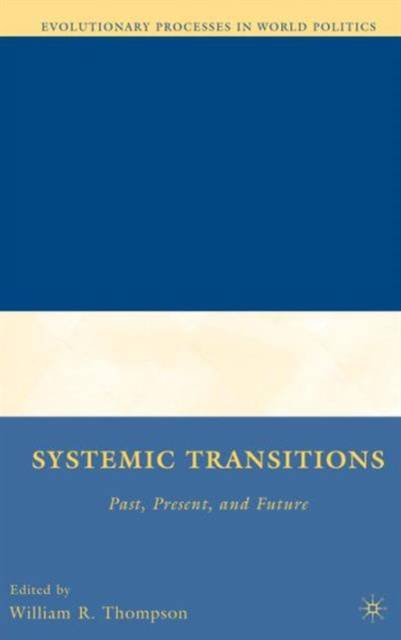
- Afhalen na 1 uur in een winkel met voorraad
- Gratis thuislevering in België vanaf € 30
- Ruim aanbod met 7 miljoen producten
- Afhalen na 1 uur in een winkel met voorraad
- Gratis thuislevering in België vanaf € 30
- Ruim aanbod met 7 miljoen producten
Zoeken
Omschrijving
We are all familiar with the popular and academic analyses of the ongoing and future ascent of China. Two of the associated questions are whether and when China might succeed the United States as the lead state in the world system. These are interesting questions, albeit ones that are not likely to be answered in the immediate future. An alternative focus examines instead periods of systemic transition - eras in which it is conceivable that a new leader might emerge at the expense of an older system leader. Framing the question this way presumes that a) future systemic transitions remain a possibility and b) transitions do not occur abruptly but may require several decades to set up structural situations in which a transition might take place. Neither of these assumptions are carved in stone and are open to question. It may be that future systemic transitions are unlikely. Or, it may be that they will not occur as they have in the past. All of these possibilities are assessed from a variety of different perspectives.
Specificaties
Betrokkenen
- Auteur(s):
- Uitgeverij:
Inhoud
- Aantal bladzijden:
- 294
- Taal:
- Engels
- Reeks:
Eigenschappen
- Productcode (EAN):
- 9780230608467
- Verschijningsdatum:
- 13/02/2009
- Uitvoering:
- Hardcover
- Formaat:
- Genaaid
- Afmetingen:
- 155 mm x 236 mm
- Gewicht:
- 544 g

Alleen bij Standaard Boekhandel
+ 167 punten op je klantenkaart van Standaard Boekhandel
Beoordelingen
We publiceren alleen reviews die voldoen aan de voorwaarden voor reviews. Bekijk onze voorwaarden voor reviews.











